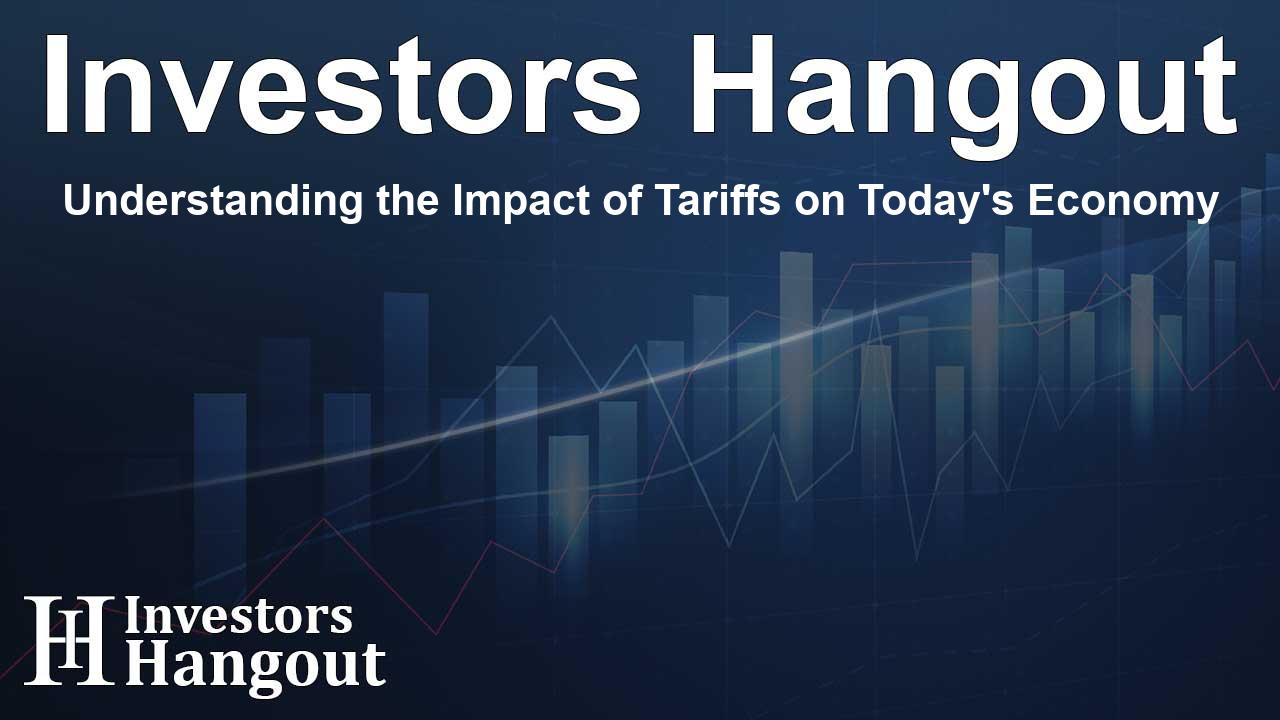Understanding the Impact of Tariffs on Today's Economy

Understanding the Impact of Tariffs on Today's Economy
The discussion around tariffs has resurfaced, especially with the recent actions taken by the US administration. Despite previous fears, the economy seems resilient, with inflation remaining in check. However, as rhetoric around tariffs intensifies, experts ponder their true significance in the current economic landscape.
Current Tariff Landscape
The US Administration's Stance
The tension in trade discussions has reached a new peak, with threats of increased tariffs looming over major trading partners. The proposed range for tariffs has escalated significantly, indicating a serious escalation in trade relations. For instance, tariffs on countries like Vietnam have already been doubled, prompting a wave of speculation in the financial markets.
Market Reactions to Tariff Announcements
The market is no stranger to these tariff-related announcements. Investors have become accustomed to the typical patterns of uncertainty that emerge leading up to deadlines. Recently, volatility has been priced into the forex markets, suggesting that traders are bracing for potential turmoil.
Evaluating Economic Indicators
Inflation Trends Amid Tariff Discussions
As the economy continues to show signs of stability, it is crucial to assess how tariffs influence inflation rates. Current indications suggest that inflation remains unexpectedly low, leading analysts to question whether the economic impacts of tariffs have been less severe than anticipated. It seems timely data releases might soon reveal a different narrative as past tariffs take effect.
Job Market Stability Amidst Concerns
Despite apprehensions about a cooling economy, the job market has shown resilience. Recent employment statistics do not indicate a looming crisis in the labor market, although many remain cautious. Labor market data often takes time to reflect broader economic shifts, meaning potential delays might soon inform the ongoing trade discussions.
The Broader Economic Picture
Potential for Rising Inflation
As companies brace for inflationary pressures, the accumulation of stock has provided temporary relief against pricing increases. However, inventory levels will not sustain indefinitely, suggesting that a significant price adjustment may occur once those buffers are exhausted. The Federal Reserve's posture indicates caution, with interest rate adjustments being a topic of keen interest among analysts.
Long-Term Implications for Trade Relations
The evolving tariff situation raises questions about future trade relationships. Countries that export to the US are weighing the implications of any proposed changes in tariffs, which could have far-reaching effects on global trade dynamics. For instance, potential increases in tariffs could alter consumer behavior and impact economic growth across the board.
Geopolitical Factors Influencing Market Sentiment
Impact on the EU and Beyond
In Europe, a stronger euro has emerged as an unexpected consequence of tariff discussions, presenting challenges for various economic stakeholders. The European Central Bank wrestles with maintaining economic stability while addressing the complexities created by ongoing tariff negotiations. These developments showcase how interconnected our global economy truly is.
Strategic Responses to Economic Challenges
As countries analyze these adjustments, finding a balance between economic health and growth becomes critical. Events on the global stage will continue to impact individual nations' economic forecasts, influencing market strategies moving forward.
Frequently Asked Questions
What are tariffs and why do they matter?
Tariffs are taxes imposed on imported goods, affecting trade balances and consumer prices. They are significant as they can influence the economic climate between countries.
How do current tariffs affect the US economy?
Current tariffs can impact consumer prices, influence inflation, and alter trade relationships, resulting in both short-term and long-term economic consequences.
What is the expected impact of rising tariffs?
Rising tariffs could lead to increased costs for consumers, encourage domestic production, and strain relationships with trading partners. The exact impact will depend on various economic factors.
How do tariffs influence employment rates?
Tariffs can impact employment rates by either protecting domestic jobs or leading to job losses in sectors that rely on imports. The overall effect may vary across industries.
What strategies can businesses use to manage tariff impacts?
Businesses can adjust pricing strategies, diversify supply chains, or optimize inventory management to mitigate the effects of tariffs on their operations.
About The Author
Contact Caleb Price privately here. Or send an email with ATTN: Caleb Price as the subject to contact@investorshangout.com.
About Investors Hangout
Investors Hangout is a leading online stock forum for financial discussion and learning, offering a wide range of free tools and resources. It draws in traders of all levels, who exchange market knowledge, investigate trading tactics, and keep an eye on industry developments in real time. Featuring financial articles, stock message boards, quotes, charts, company profiles, and live news updates. Through cooperative learning and a wealth of informational resources, it helps users from novices creating their first portfolios to experts honing their techniques. Join Investors Hangout today: https://investorshangout.com/
The content of this article is based on factual, publicly available information and does not represent legal, financial, or investment advice. Investors Hangout does not offer financial advice, and the author is not a licensed financial advisor. Consult a qualified advisor before making any financial or investment decisions based on this article. This article should not be considered advice to purchase, sell, or hold any securities or other investments. If any of the material provided here is inaccurate, please contact us for corrections.
